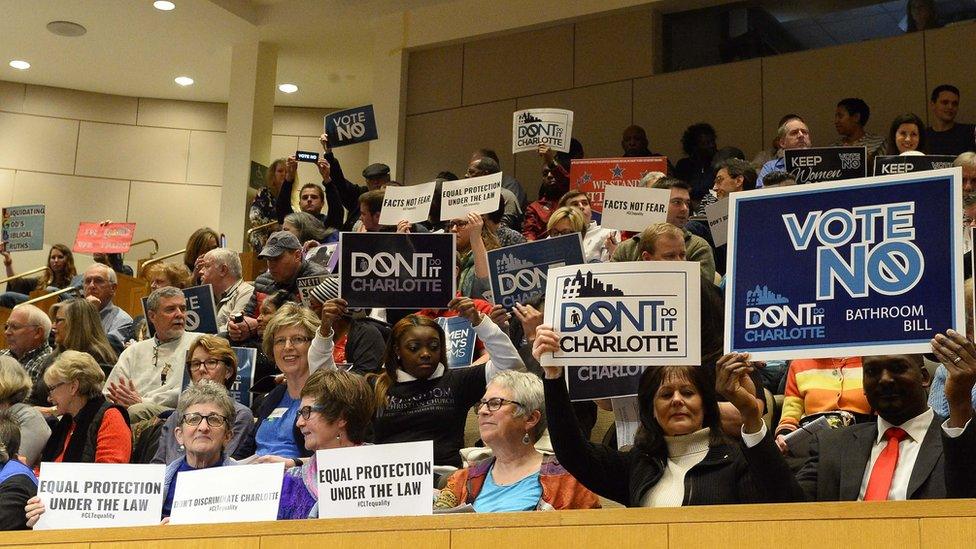Which US states have passed religious laws?
- Published
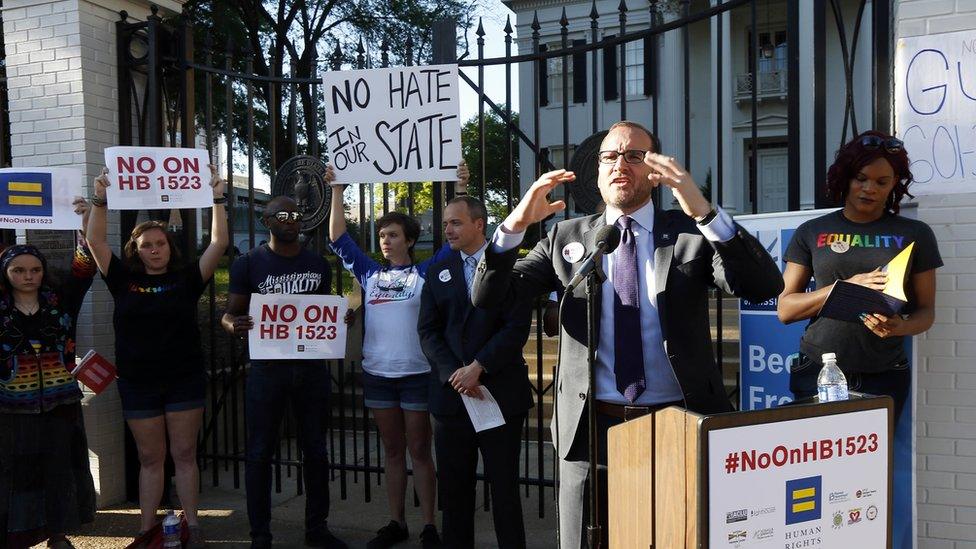
The sweeping "religious freedom" bill in Mississippi is just one of many passed by American lawmakers
More than a dozen states in the US have passed or considered "religious liberty" laws, sparking controversy and protest.
Many of the laws directly affect the lesbian, gay, bisexual and transgender community.
Supporters argue that the bills protect religious beliefs but critics say they are discriminatory.
Tennessee is the latest state to consider a bill, involving therapists and counsellors.
Under Senate Bill 1556, external, they would be exempt from serving clients based on sincerely held religious beliefs or principles.
Such laws, say critics, are an attempt to discriminate in the face of gay marriage becoming legal last year.
Here is a round up of what has been passed or blocked, from "bathroom bills" to laws ensuring wedding planners can refuse service at gay weddings.

Arkansas:
Governor Asa Hutchison passed SB 975, external last year, which aims to keep religious exercise from being "substantially burdened by government". Opponents to the bill say it enables discrimination against gay people.
Florida:
On 1 July, House Bill 43, external will go into effect, which will allow clergy and religious organisations to refuse to marry people if it violates a "sincerely held religious belief".
Georgia:
Governor Nathan Deal vetoed a bill that would keep the government from penalising organisations that refuse to employ, provide services or allow for use of facilities because of a "sincerely held religious belief", and protect clergy who would not perform same-sex marriages. Mr Deal was under a great deal of pressure from major US companies like Coca-Cola, the NFL and Disney, who threatened to pull business from the state over the law.
Indiana:
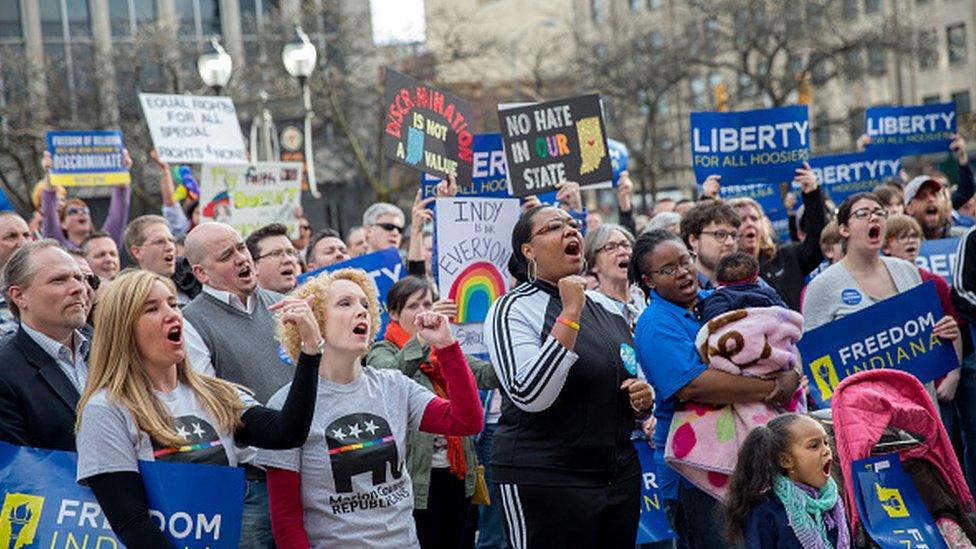
Indiana's conservative governor was urged to amend the controversial law
Governor Mike Pence signed a bill that would keep the government from "substantially burdening" religious exercise for individuals, organisations and businesses, but later amended it to say the law cannot be used to deny services, housing or employment, based on race, religion, age, sexual orientation or gender identity. He changed the law, Senate Bill 50, external, after pressure from businesses.
Kansas:
Thanks to Senate Bill 175, external, signed by Governor Sam Brownback, colleges and universities cannot deny student groups funding because they require their members to follow certain religious beliefs or conduct.
Mississippi:
The governor of Mississippi, Phil Bryant, signed a sweeping bill, HB1523, external, that allows businesses to refuse service to gay couples based on religious beliefs, amid opposition from equal rights groups and businesses.
He said the bill "protects sincerely held religious beliefs and moral convictions". Protesters say the bill would allow for lawful discrimination of gay, lesbian, bisexual and transgender people.
Churches, religious charities and private business can use the law to legally not serve people whose lifestyles they disagree with, including 13 different categories of wedding-related business. Governments must still provide services, but individual government employees can use the law to opt out.
The bill also ensures that anyone who wishes to establish "sex-specific standards" for restrooms and dressing rooms is free to do so, and that sex-specific dress codes can be set.
Missouri:
The state is considering a bill that would exempt wedding-related vendors from refusing to serve couples based on religious beliefs.
North Carolina:
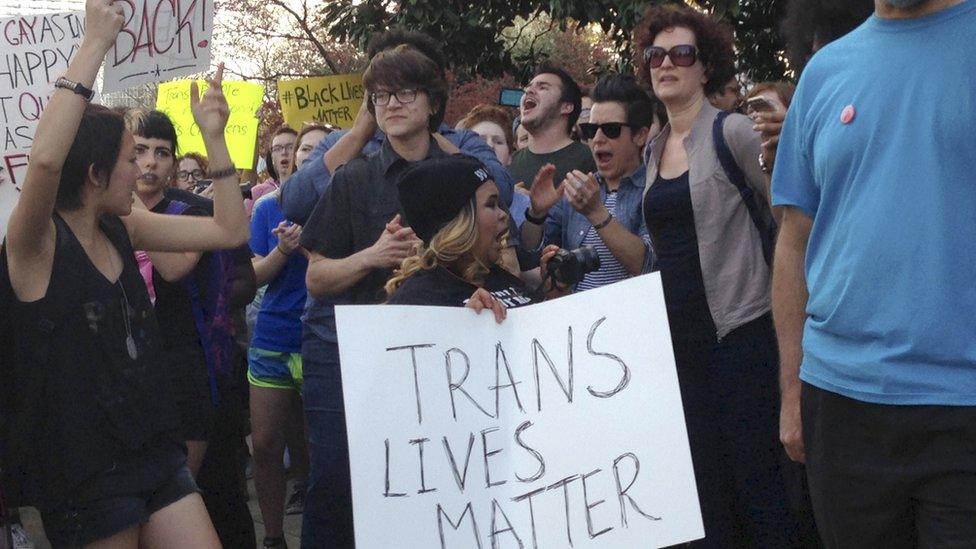
In North Carolina, backlash against the new law has been strong
North Carolina enacted a law, HB2, external, that bars its cities and counties from having their own anti-discrimination rules. Legislators pushed for the bill after Charlotte passed an ordinance allowing transgender people to use restrooms according to gender identity. The state is the subject of much backlash from major companies, including PayPal, which pulled plans for an office in the state that would have employed 400 people.
Oklahoma:
Clergy and other officials do not have to perform same-sex marriages or offer marriage counselling in the state to those who violate their religious beliefs, thanks to House Bill 1007, external, signed by Governor May Fallin.
Texas:
Just prior to the US Supreme Court ruling legalising same-sex marriage, Texas Governor Greg Abbott passed a similar bill to Oklahoma's regarding clergy and facilities and same-sex marriage, Senate Bill 2065., external

"When did you last experience discrimination?"

- Published5 April 2016
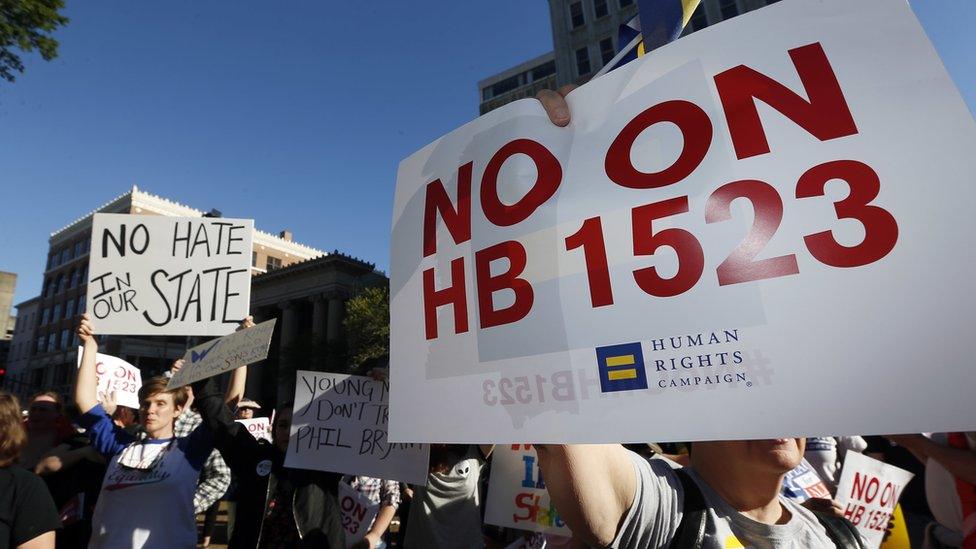
- Published28 March 2016
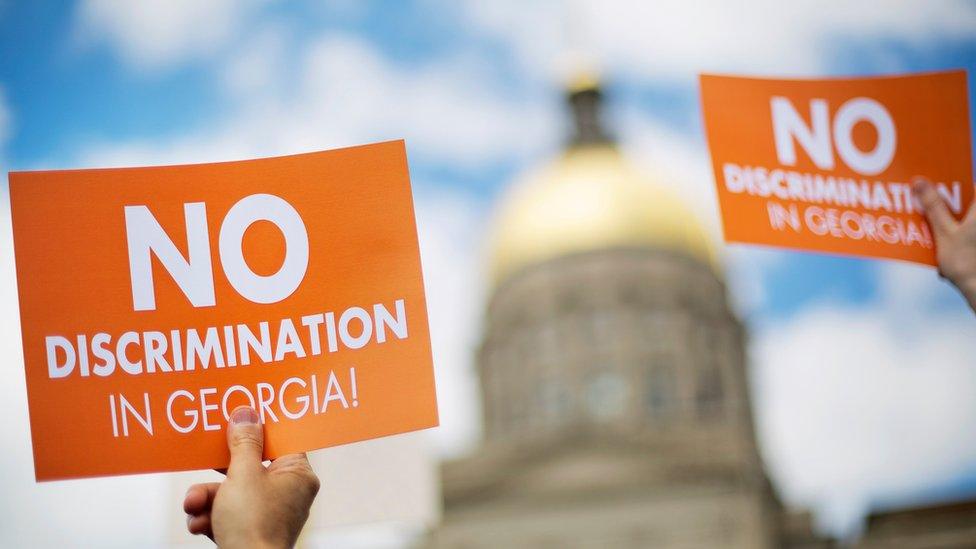
- Published4 November 2015
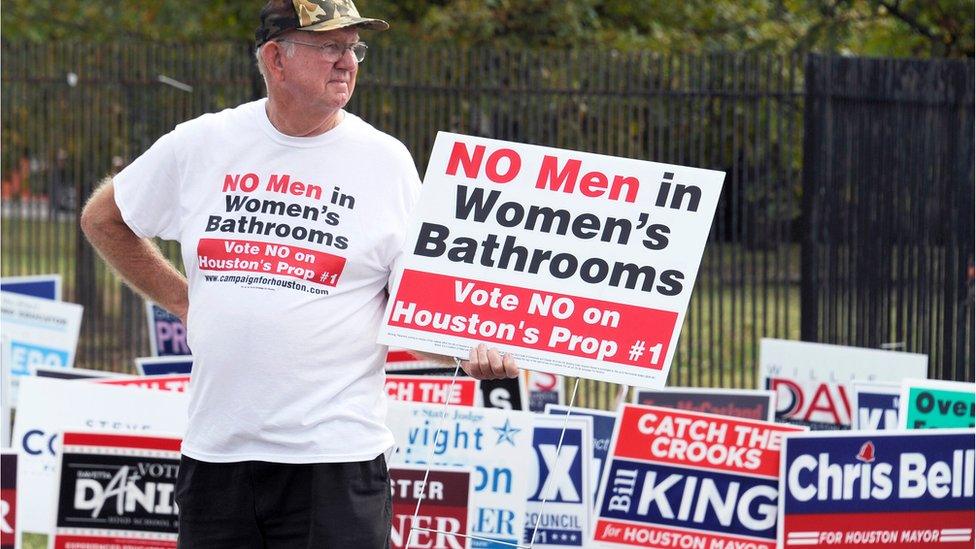
- Published24 March 2016
